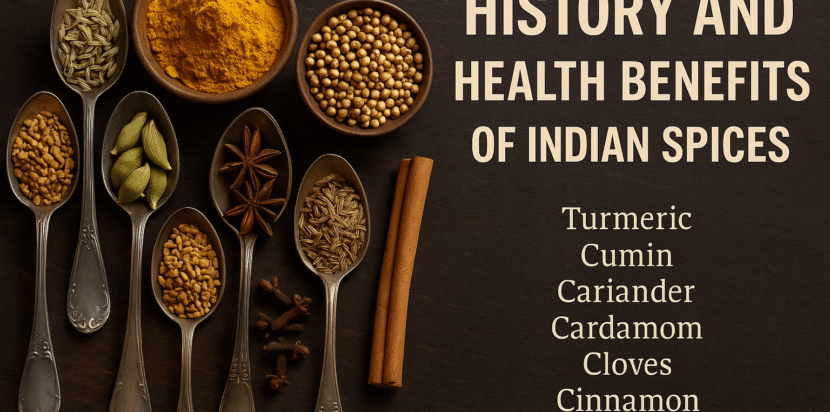Indian cuisine is world-renowned for its vibrant flavors, colors, and aromas—all thanks to the magical spices used in every dish. But beyond taste, Indian spices have a rich history and remarkable health benefits rooted in Ayurveda and traditional medicine. In this blog, we explore some of the most popular Indian spices, their origins, and why they deserve a place in your kitchen.
Key Spices in Indian Cooking & Their Benefits:
1. Turmeric (Haldi)
- Known for: Anti-inflammatory and antioxidant properties.
- Used in: Curries, rice, lentils, and milk.
- Health Tip: Turmeric latte (Golden Milk) is great for immunity.
2. Cumin (Jeera)
- Known for: Aids digestion and boosts metabolism.
- Used in: Curries, tempering, soups, and rice.
3. Coriander (Dhaniya)
- Known for: Cooling effect on the body, aids digestion.
- Used in: Spice blends, chutneys, and curries.
4. Cardamom (Elaichi)
- Known for: Helps with digestion, freshens breath, and relieves acidity.
- Used in: Desserts, tea, biryani, and festive dishes.
5. Cloves (Laung)
- Known for: Relieves toothache, aids digestion, boosts immunity.
- Used in: Spice mixes, rice, curries, and chai.
6. Cinnamon (Dalchini)
- Known for: Controls blood sugar, improves heart health.
- Used in: Curries, desserts, tea, and rice dishes.
7. Fenugreek (Methi)
- Known for: Controls blood sugar, good for hair and digestion.
- Used in: Curries, pickles, and spice blends.
Why Indian Spices Matter:
- They not only flavor the food but also promote wellness.
- Many are anti-inflammatory, anti-bacterial, and rich in antioxidants.
- Indian spices have been used for thousands of years in Ayurvedic medicine.
 Phone: +4915214632785
Phone: +4915214632785 Email: tajmahalindischesrestaurant@gmail.com
Email: tajmahalindischesrestaurant@gmail.com